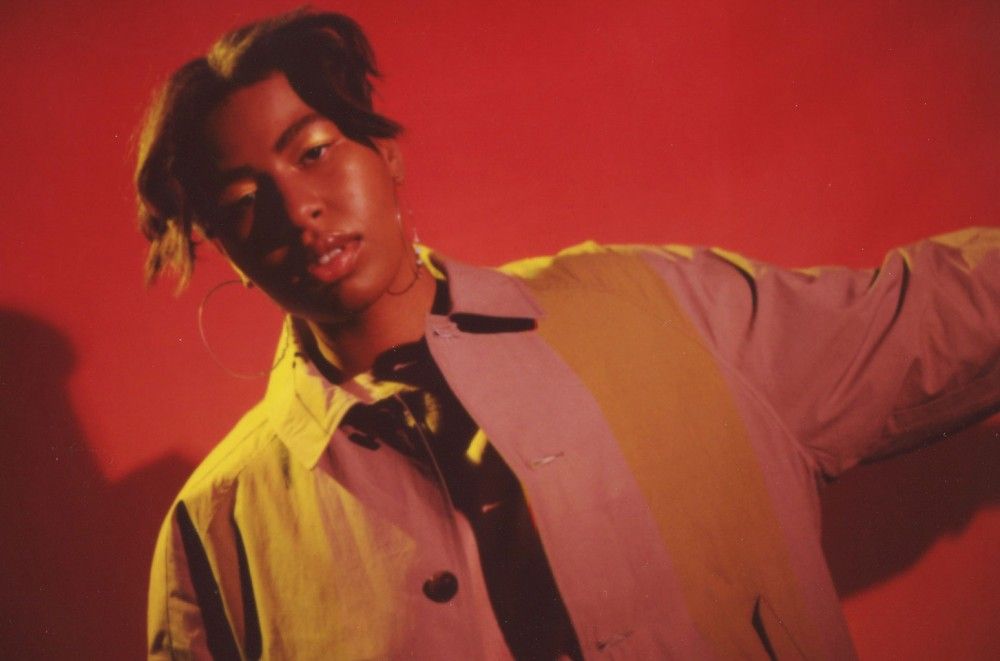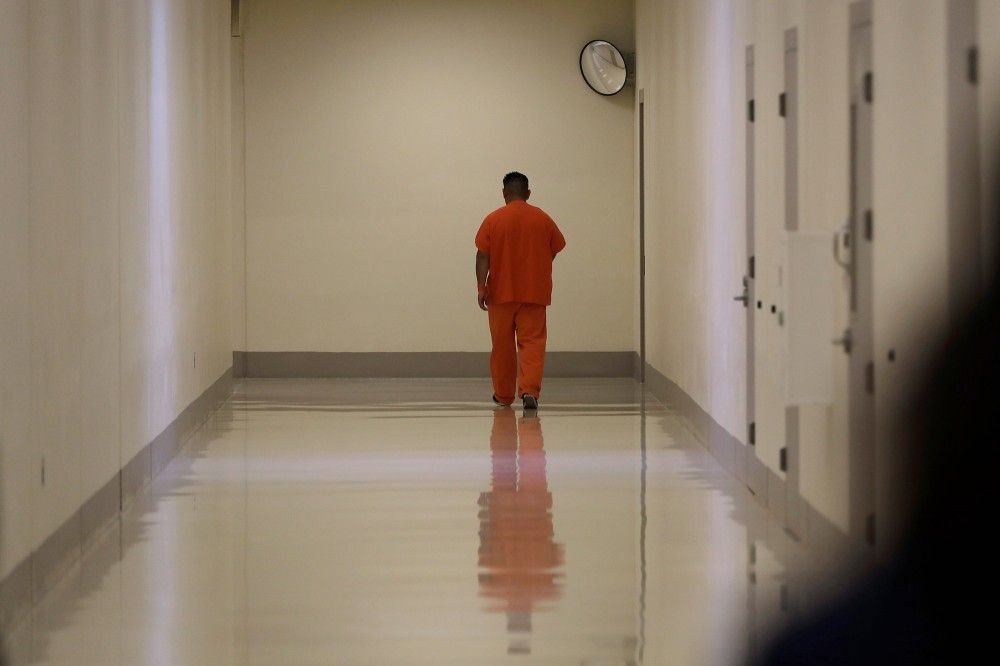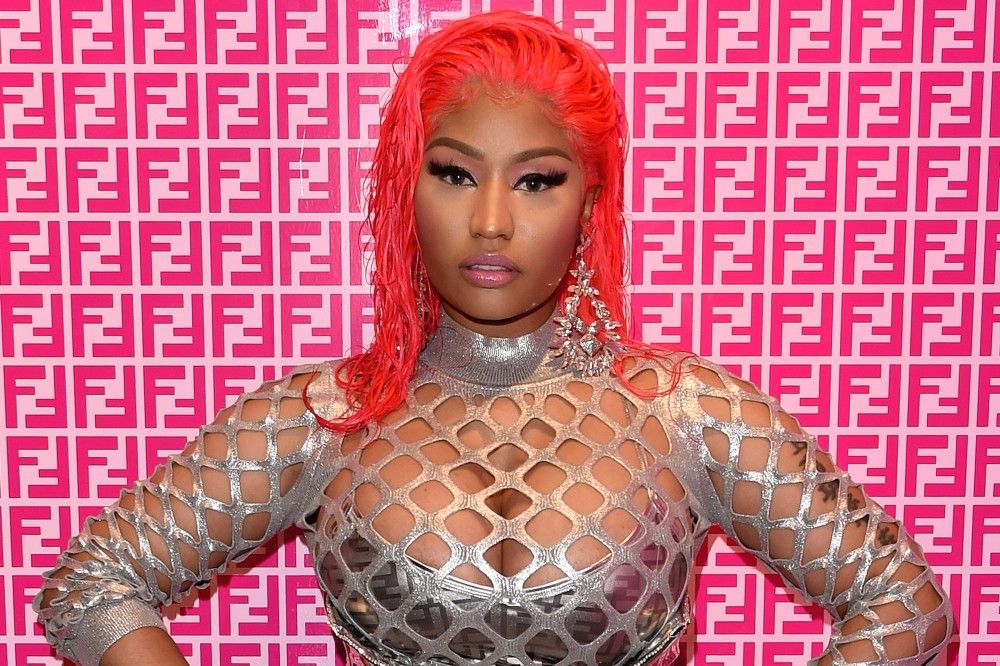
Laughter, Tears, and Harmony: How Phoebe Bridgers Made 'Punisher'
Being is a pretty sweet gig. “I fucking love my life,” says the 25-year-old Californian. “My mom occasionally gets, ‘Are you related to Phoebe Bridgers?’ She fucking eats it up. And then she’ll be like, ‘I promised this couple that you would play their prom,’ and I’m like, ‘Mom! No!’”
Bridgers has become one of the most acclaimed singer-songwriters of recent years by writing bleak, introspective songs grounded in twentysomething realness — she’s the folk rocker most likely to make you cry a little as you brew your morning coffee. Outside of her music, though, she’s irreverently funny, especially on social media. (“If eating ass is wrong I don’t want to be right” and “Every Wednesday is ass Wednesday where I’m from” are among her greatest hits on Twitter.)
She doesn’t see any contradiction there: “I think there’s more humor in my music than people hear,” she says. “I have never wanted to be a character, and I have never wanted to hide stuff about myself. I want to normalize personhood. Songs are like therapy to me: I’m just like a normal person, going to therapy.”
Bridgers is sitting in the lounge of the Ludlow Hotel in Manhattan on an early evening in February, ready to discuss her new album, Punisher. There’s a speck of glitter on her cheek that reflects the flames from a nearby fireplace whenever she laughs, which is often. “A beautiful day in New York City,” she says, sipping chamomile tea. “I got a bunch of free shit at Glossier, so that was pretty sick. Then I listened to great music walking down the streets.”
The key themes of Punisher, she says, are “crying” and feeling “numb.” Nearly every line on the new album carries an intense emotional charge, from “You couldn’t have stuck your tongue down the throat of somebody who loves you more,” on “Moon Song,” to “I hate your mom/I hate it when she opens her mouth,” on a devastating breakup song called “I See You.” “Got a fight with their mom at Whole Foods,” she says, smirking, of the ex in question. “Trump supporter.”

Jessica Lehrman for Rolling Stone
Jessica Lehrman for Rolling Stone
Bridgers grew up in Pasadena, California, a childhood that she describes as being “peppered” with happy memories. Her parents didn’t divorce until she was 19, but the years leading up to that weren’t always easy. “Unfortunately, I don’t think trauma is that rare,” she says, adding that her life to date has been “about as traumatic as your average woman.”
She mentions how close she is with her younger brother, Jackson Bridgers, who is named after Jackson Browne. (She introduced her brother to the Seventies singer-songwriter at a show in the summer of 2016, when the younger Jackson happened to be in full Insane Clown Posse face-paint. “He just thought it was funny to wear ICP makeup to my show,” she says, laughing. “I was like, ‘This guy is…named after you…’”)
Music was a constant in Bridgers’ life from a young age. She took piano lessons at the encouragement of her mother, Jamie; when that didn’t take, she turned to guitar at age 13. By the time she graduated from Los Angeles County High School for the Arts, she was playing in a punk band called Sloppy Jane that ended up scoring a placement in an Apple ad. That led to more commercials, which eventually earned Bridgers enough money to make her 2017 debut, Stranger in the Alps. “My rent was paid, and I would go to the studio every day like it was my fucking job until it was my job,” she says. “There’s no advice you could give anybody to have that same experience. I was so fucking lucky.”
Alps is a tour-de-force of emotionally direct songwriting, with a level of detail that made fans feel like they knew her, or were her. (“Last night I blacked out in my car/And I woke up in my childhood bed,” she sang on “Funeral,” one of the album’s centerpieces. “Wishing I was someone else, feeling sorry for myself/When I remembered someone’s kid is dead.”) She followed that breakthrough with a pair of collaborative efforts, teaming up with Lucy Dacus and Julien Baker as Boygenius, and Conor Oberst as Better Oblivion Community Center. By last year, she’d achieved the kind of indie fame that lands her songs on Taylor Swift’s playlist yet still lets her shop comfortably at Trader Joe’s.
Working with Oberst, whose music she’d looked up to for years, was a big deal for Bridgers: “I just didn’t feel like a peer,” she says. “He tried his fucking hardest to make me feel respected and listened to, but I was so intimidated.” For the most part, though, the two records she released after Alps were appealingly low-key. “I’ve been meeting these people along the way, and then starting bands,” she says.
She spent much longer working on Punisher, which she recorded on and off from the summer of 2018 through the fall of 2019. “I won’t know, truly, what this] record’s about until like, a year from now,” she says. “It’s like when you go through a breakup and then five years later you’re like, ‘Oh, shit. That’s what was going on at that time.’”
The new album is full of extremely Phoebe Bridgers moments. “Savior Complex” is a heartbreaking acoustic dirge with a melody that she wrote in a dream. On “Moon Song,” she takes a characteristically blunt dig at the rock canon: “We hate ‘Tears in Heaven’/But it’s sad his baby died,” she sings. “We fought about John Lennon/Until I cried.”
“I, for the most part, fucking hate classic rock,” Bridgers says. There are some exceptions, though: “I love John Lennon,” she continues. “Easily best Beatle. He’s been such an icon for so many people who are my heroes, like Elliott Smith and Daniel Johnston.”
“Halloween” is a twisted holiday song, where she playfully sings, “But I count on you to tell me the truth/When you’ve been drinking and you’re wearing a mask,” backed by an upright bass and subtle synths. Her vocals sail through the octaves, producing a chilling effect. “I love how sad it is to throw depression into a holiday,” she says. “I don’t want to do Christmas, because that’s overdone. But I had a voice memo on my phone, because I was trying to get stuff to sample on Halloween one year where I was totally by myself, and it’s children laughing in the background. It’s just so fucked up and weird to me.”
Bridgers wrote “Halloween” around the time she met singer-songwriter Christian Lee Hutson, who became a close friend and collaborator, in the spring of 2017. “We basically fell in love,” she says. “I think friendship is the most romantic form of love, because there’s no weird expectation.” She went on to produce Hutson’s new album, Beginners — her first time producing a record — which helped prepare her to co-produce Punisher with the help of Tony Berg and Ethan Gruska, the pair of collaborators who worked with her on Alps. “I feel like they’re more my band than anybody,” she says of the duo. “When I hear them, I hear myself.”
Berg — a longtime session guitarist, producer, and major label veteran whose past credits include records by Aimee Mann and Peter Gabriel — was the one who convinced Bridgers to speed up “Kyoto,” a ballad that she wrote during her first trip to Japan. It became the most upbeat song on the record, accompanied by a surge of instrumentation that ranges from horns to mellotron. “You called me from a payphone/They still got pay phones,” she sings. (“I totally made that up,” she says, proudly, when asked about that line. “I’ve never even Googled it.”)
Bridgers characterizes Punisher as her most collaborative work to date. “Because I run the show, I can have some random person come play a tambourine if I think it’s funny,” she says. Oberst sings backup on two songs, and Dacus and Baker harmonize on the banjo standout “Graceland Too.” “I’m influenced by every level of their musicality,” Bridgers says of her Boygenius bandmates. “Julien’s belting is so cool. Lucy literally sounds like melted butter when she sings. I love them. True dudes.”
The pandemic that hit between Punisher‘s recording and its release has already affected Bridgers’ plans in one way: “I See You” was originally titled “ICU,” but she changed it for fear of seeming insensitive. Beyond that, it’s hard to say when Bridgers will be able to tour, though this week she’ll kick off a virtual trek inside her Los Angeles home, including stops at “Bathroom” and “Bed” (in classic Bridgers fashion, she accompanied the announcement with a cheeky video).
Whenever she does go on a real tour, she’ll be playing in front of one of the most passionately devoted fan bases in music. “I want to listen to music where nobody’s ever said the exact way that I’ve felt,” she says. “And then I listen to it, and I’m like, ‘Holy shit, they nailed it.’ I hope I’m doing that for people.”



